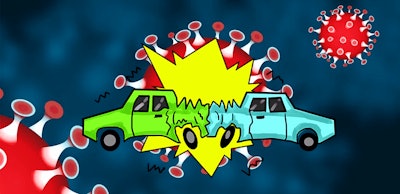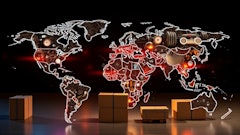
Shortly afterward, governments across the world announced plans that would not prevent the inspection from spreading so much as slow its progress to alleviate the stress on healthcare systems.
In Canada, the Federal Government appealed to each Canadian to take certain precautions for the good of us all. Our health and well-being is now in one another’s hands.
For business owners in Canada’s collision sector, that sense of personal responsibility is particularly heavy. With a duty of care toward customers, staff members and business partners, owners must make firm, clear decisions and ensure that staff members follow them.
Failure to act will have consequences.
Dozens of people visit the average auto repair business each and every day. Should a surface–like a doorknob or a front desk–be left uncleaned, a facility could easily become an infection nexus.
I can’t think of a group better suited to handle the burdens of command through this crisis. Many Canadian business owners have already shown their mettle.
In 2003, the Greater Toronto Area’s collision repair community was on the front lines of the SARS crisis. Like many customer-facing businesses, auto repairers played a key role in making sure that the illness was contained.
Collison centres in Canada’s largest metropolitan area were among the first businesses to use ethyl-alcohol gel hand sanitizers. By-and-large, facilities helped normalize their placement throughout the public areas of a business.
Of course, a public health strategy done right is one that doesn’t make the history books. Following the SARS crisis, the public tended to laugh off the media coverage as overblown. Had business owners and public health officials not been as diligent, however, complaints would have been made about the lack-of-attention paid to the crisis.
This time, we know the disease won’t be prevented by our diligence. The crisis was already an epidemic before it had a chance to settle in on our shores.
Nevertheless, the fight will not be in vain. For every day we can buy each vulnerable person, their chances of survival go up. We get them one day closer to a vaccine. We get our hospitals one more free bed.
When the dust finally settles, life for members of Canada’s collision community, and for citizens around the world, will get back to normal.
Eventually, historians will write the history of the 2020 Coronavirus Outbreak.
I have no doubt that the efforts of Canada’s repair community will go entirely unmentioned.





















